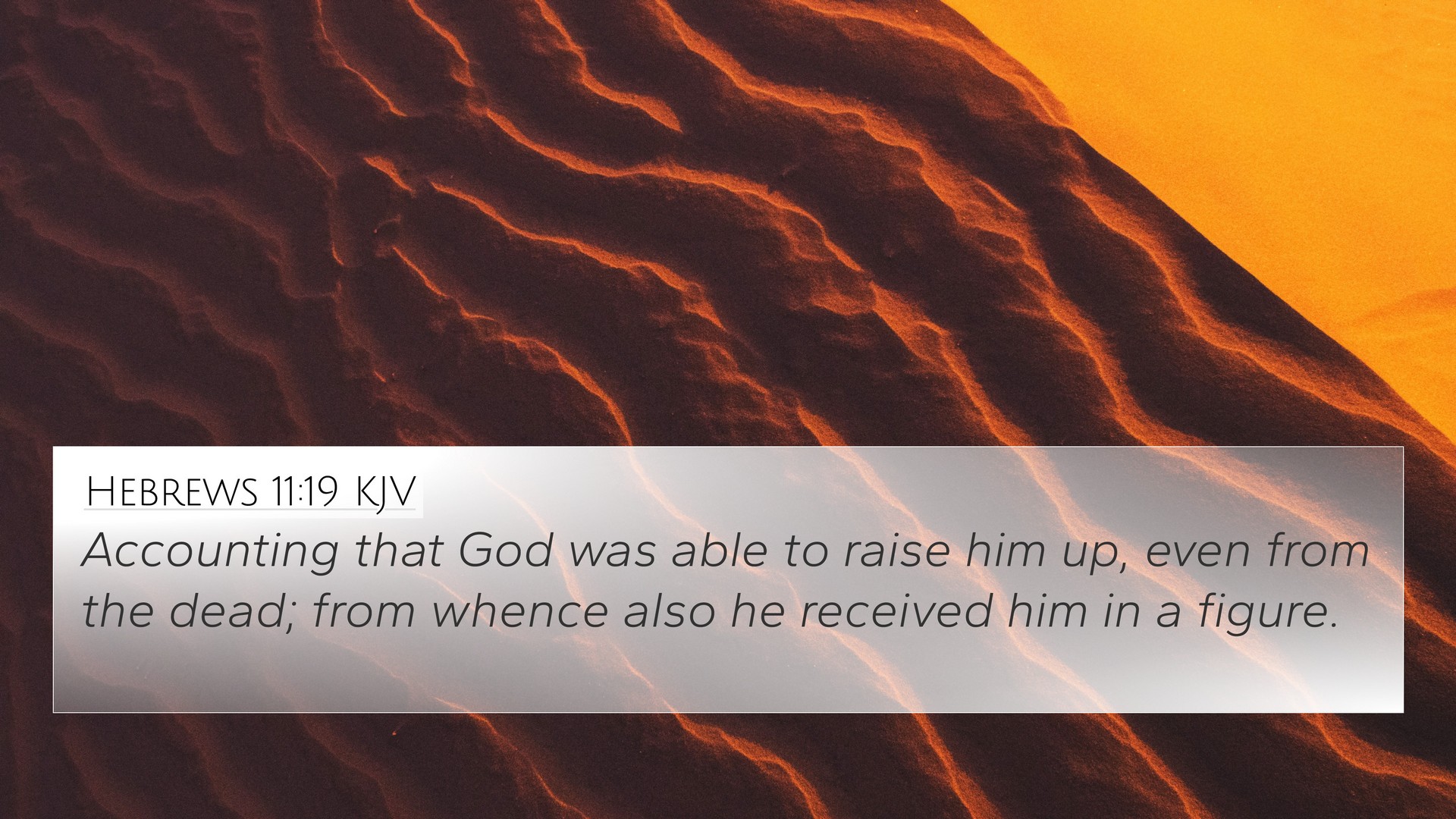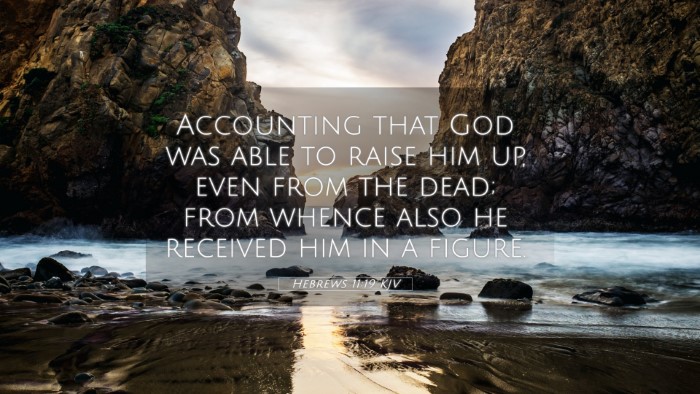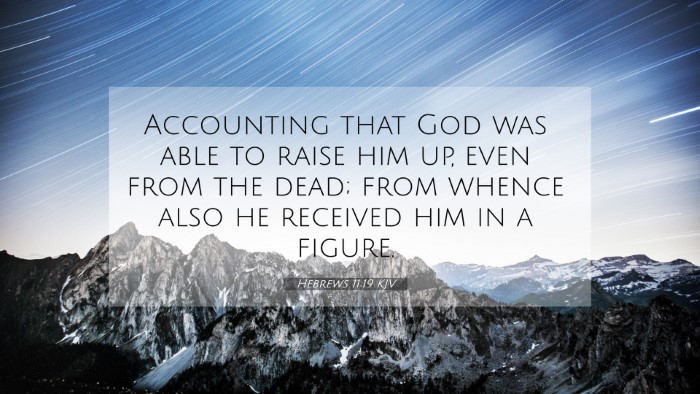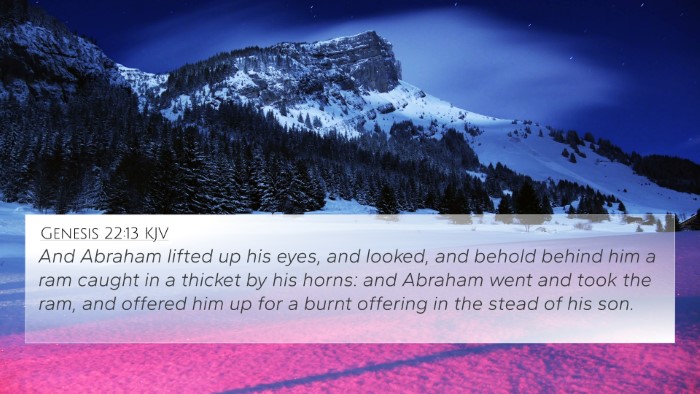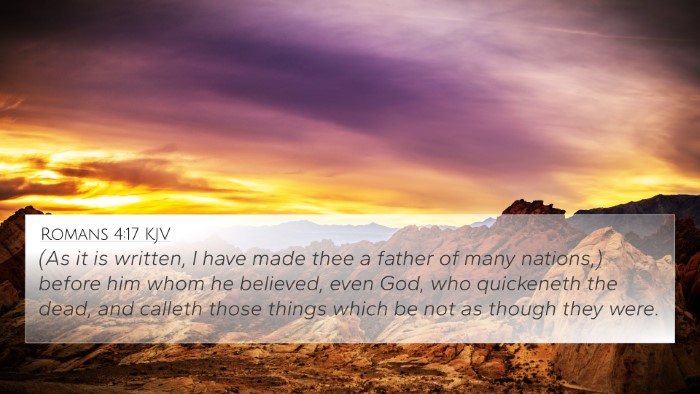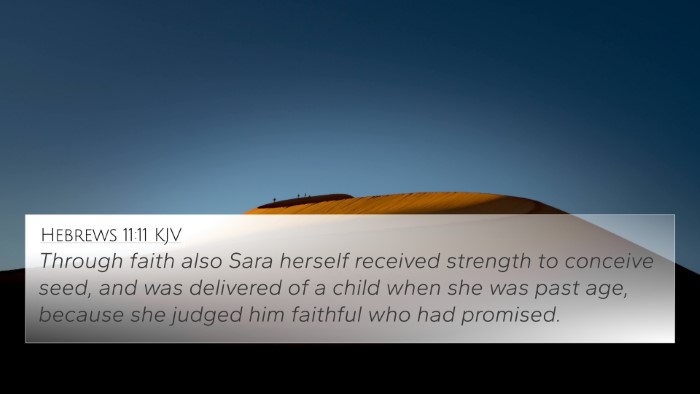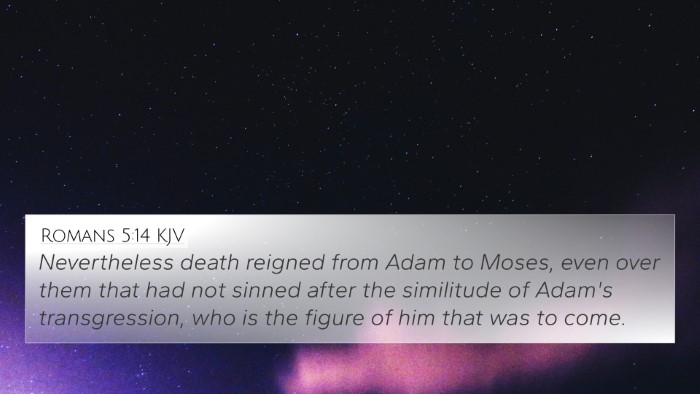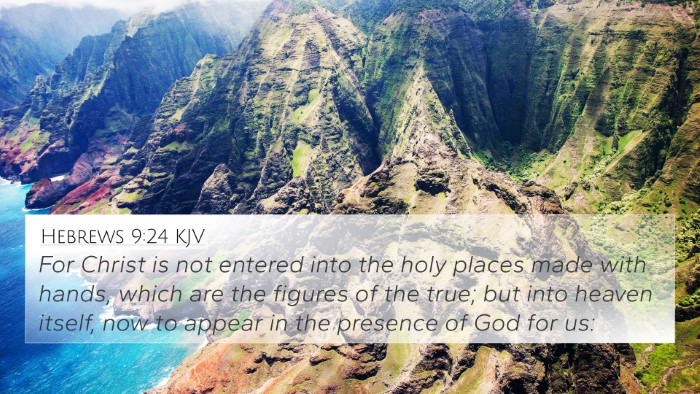Understanding Hebrews 11:19
Hebrews 11:19 states, "Accounting that God was able to raise him up, even from the dead; from whence also he received him in a figure." This verse is a rich verse reflecting on the faith of Abraham during a critical moment in biblical history, where he was tested by God regarding the sacrifice of his son Isaac.
Summary of Insights
The commentary on this verse draws from several public domain sources, providing a layered understanding of its meaning.
Faith in God’s Promises
Matthew Henry emphasizes Abraham's profound faith in God's ability to bring Isaac back from the dead. The verse highlights that Abraham believed in divine resurrection, which foreshadows the resurrection of Christ. This belief illustrates the idea that God's promises prevail even over death, suggesting that what seems impossible to humanity is within God's omnipotent reach.
The Typology of Isaac
Albert Barnes points out the significance of Isaac's near-sacrifice as a type of Christ's sacrificial death. The “receiving back” of Isaac figuratively indicates resurrection, where Isaac's return from the brink of death aptly parallels the resurrection of Jesus. This connection deepens the understanding of sacrificial love and redemption embodied in the Christian faith.
God’s Sovereignty
Adam Clarke elaborates on how God's sovereignty extends into the realm of life and death. Abraham's faith demonstrates a profound trust in God's ultimate authority over both, suggesting that even in human trials, faith in God's power can guide believers through the darkest times. Clarke’s take illustrates the powerful interconnection between fear, trust, and the anticipation of divine intervention.
Cross-References for Hebrews 11:19
This verse resonates with numerous other scriptures that explore similar themes of resurrection, faith, and God's promises. Below are some key cross-references:
- Genesis 22:5: Abraham says to his young men, "Stay here with the donkey; I and the lad will go yonder and worship, and come again to you."
- Romans 4:17: "As it is written, I have made you a father of many nations, before him whom he believed, even God, who quickens the dead, and calls those things which be not as though they were."
- John 11:25-26: Jesus says, "I am the resurrection and the life: he that believes in me, though he were dead, yet shall he live."
- Galatians 1:1: "Paul, an apostle, (not of men, neither by man, but by Jesus Christ, and God the Father, who raised him from the dead;)"
- Hebrews 6:18-19: "That by two immutable things, in which it was impossible for God to lie, we might have a strong consolation, who have fled for refuge to lay hold upon the hope set before us."
- 1 Corinthians 15:12-22: This passage discusses the resurrection of the dead, emphasizing the foundational belief of Christian faith.
- Matthew 22:32: Jesus affirms the resurrection of the dead, stating: "I am the God of Abraham, and the God of Isaac, and the God of Jacob. God is not the God of the dead, but of the living."
Thematic Insights
Hebrews 11:19 offers profound insights into themes prevalent throughout the Scriptures:
- The Intersection of Faith and Obedience: The act of Abraham readying to sacrifice Isaac showcases unwavering obedience to God’s command, which is rooted in his deep faith.
- Foreshadowing the Resurrection: The resurrection theme culminates in Christ’s death and resurrection and invites a deeper reflection on how believers find hope in God’s promises.
- The Power of Divine Possibility: The belief that God can triumph over death is central to understanding both Old and New Testament theology.
- Lessons in Testing: Abraham’s trial serves as a benchmark for believers on how faith is refined through tests and tribulations.
Conclusion
In conclusion, Hebrews 11:19 is more than a historical account; it is a profound testament to faith that resonates through time. The insights gathered from the commentaries by Matthew Henry, Albert Barnes, and Adam Clarke reveal a multi-faceted understanding of God’s promises and the linkage between life, death, and resurrection. This scripture offers the believer hope, a deeper comprehension of faith's implications, and a reminder of God’s sovereign control. For those seeking to explore further, various tools for Bible cross-referencing, such as a Bible concordance or cross-reference Bible study guides, can enrich one’s understanding of how interconnected the scriptures truly are.
